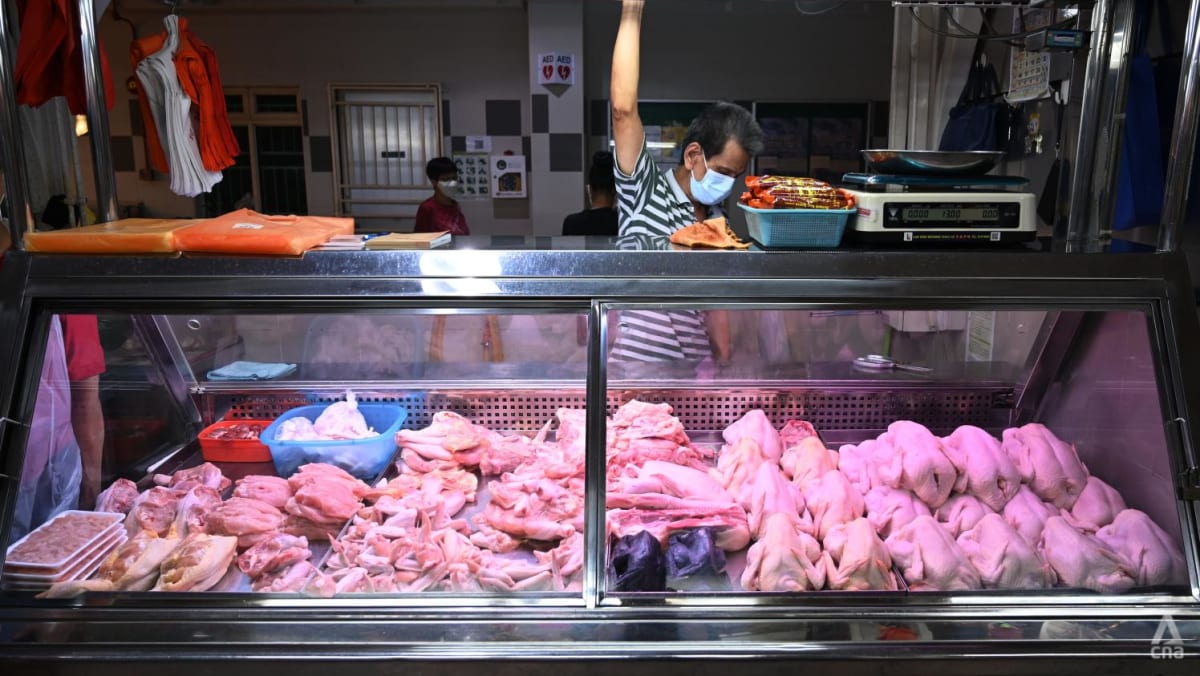Commentary: What Malaysia’s chicken ban and other food supply issues could mean for Singapore inflation
A domino phenomenon of food nationalism may be a lose-lose scenario for everyone: It drives up food prices, including for those who already struggle to afford it.
Countries’ medium-term policy credibility and business relationships are jeopardised as partners scramble to find alternative substitutes on short notice. Bans also tend to increase the incentive to smuggle goods out for higher foreign prices.
But temporary food export bans appear an easy way for countries to soothe domestic concerns and may persist so long as people worry about food inflation.
What lies in store for Singapore, seeing as we import over 90 per cent of our food requirements?
COULD CHICKEN EXPORT BAN DRIVE FOOD INFLATION IN SINGAPORE?
Malaysia’s export ban on chicken alone is unlikely to have a significant effect on overall food inflation in Singapore. While food accounted for 21.1 per cent of the Consumer Price Index (CPI) basket, chilled poultry occupies only 0.3 per cent of the total basket.
Headline inflation rose 4.8 per cent and food inflation increased 3.1 per cent year-on-year (yoy) on average in the first four months of 2022.
But the price of chilled chicken will likely go up due to the supply-demand imbalance. According to the Singapore Food Agency (SFA), Malaysia accounts for 34 per cent of Singapore’s chicken supply in 2021, and most of the chicken imported were slaughtered and chilled in Singapore.
The export ban means foodstuffs like chicken rice in our hawker centres are likely to see a spike in prices, as stalls are unlikely to obtain supply from alternative sources so quickly. Poultry Merchants’ Association’s secretary Ma Chin Chew told CNA earlier: “For countries (like the US and Brazil), they are too far. Even if importers make their bookings right away, the chickens will only arrive two months later.”
Without knowing how long the export ban might last, buyers may not want to commit to alternative sources too far ahead either. So, some stallholders said they intend to close temporarily, especially if they do not consider frozen chicken a viable option.
For all the latest business News Click Here

